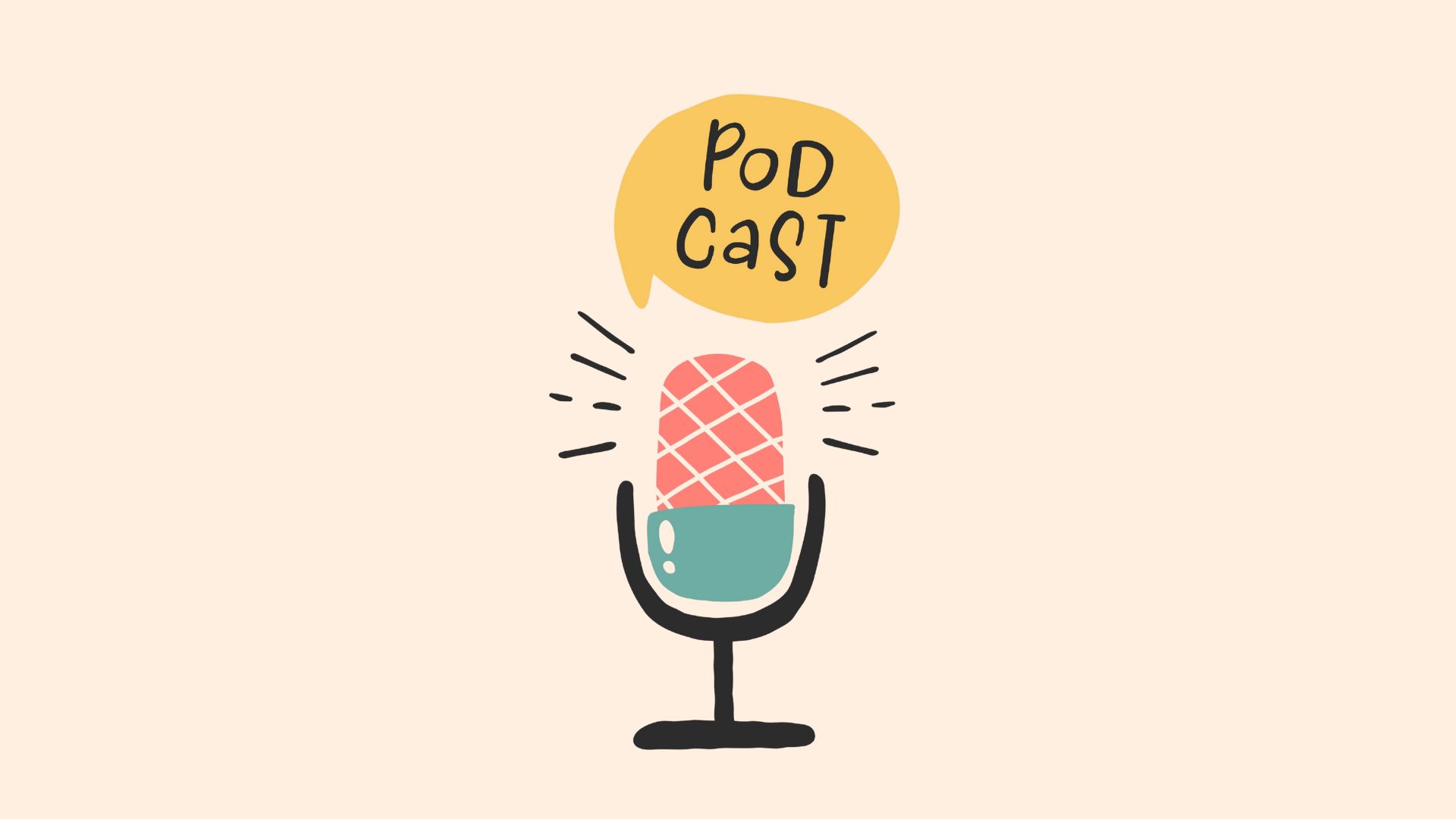How podcast SEO can help grow your audience
Unless your great dream is to podcast to no one you’ll want to do everything in your power to get your show in front of new listeners.
And this includes making sure your podcast SEO is on point.
Why is SEO important?
SEO is an acronym for Search Engine Optimisation and if you get it right it can be a powerful way to grow your podcast audience organically because it increases the chances of your show turning up in search results.
For example, if your show is about pancakes (just go with me here), and you’ve done your SEO right, it can pop up in results for people searching for ‘podcasts about pancakes’ or ‘pancake podcasts’ in Google.
Even if they weren’t searching for a podcast about pancakes specifically, your show could still turn up if your episodes contained keywords related to what people were searching for e.g. “how to cook the perfect pancake.”
When discoverability is a big issue in podcasting this is a powerful way to get your show in front of new listeners.
How to get your SEO right
Having the right keywords in the right places can help people find your show both inside and outside of podcast apps.
So, when you’re thinking about how to get your podcast SEO right, especially on your podcast website, here are a few things you need to be mindful of…
The quality of your content
Google doesn’t want to get a reputation for surfacing crap to its users so you want to make sure the content you’re creating is as high quality as possible.
Google’s algorithm takes into account how long people stick around on a page/post when they click on it in a search result.
If they bounce right off, Google knows the person clicking didn’t get what they came for and they penalise the content by deprioritising it.
Whether your content delivers what it promises
Click baiting is when you write a headline or description that’s designed to get people to click but what they get on the other side isn’t what you promised.
You’ll see examples of this when content providers write headlines like “The Most Amazing Story Ever…” (the chances of it actually being the most amazing story you’ve EVER heard are pretty slim).
For Google, this is a big no-no and if you try and trick people into clicking on your content you’ll get penalised because it’ll be reflected in how quickly people bounce out and go somewhere else.
Google doesn’t like keyword stuffing (and neither does Apple Podcasts)
Keyword stuffing is when you try and trick Google by shoving keywords into your title and description as many times as you can.
For example, if your show is about pancakes you might think it’s a great idea to call it “All About Pancakes: The Show About Pancakes For People Who Love Pancakes!”
Unfortunately, sneakily shoving all those pancakey keywords into your title isn’t a good idea because Google takes note of this, as does Apple Podcasts.
The other thing Google takes into account is whether your content is ‘human-readable.’
This means your title and description need to look like they were written for a human, not a bot.
Podcast SEO 101
Right, now you know why it’s important to get your podcast SEO right and some of the things that impact it, how the hell do you do it?
1 Pick your keyword
Keyword research gives you a chance to work out what people are searching for in your niche so you don’t end up using a keyword no one is interested in.
It’s also important to identify opportunities where there isn’t a lot of competition because those are topic areas where you might be able to get to the top of the search results.
For your show, your keyword(s) would be the main topic(s) people are searching for in your niche e.g. for my show, the PodSchool Podcast, it could be “podcasting tips” or “how to start a podcast.”
Remember the more general you go the more competitive the keyword is likely to be and the harder it’ll be to rank.
That’s one of the reasons you want to find a niche.
To make sure you pick the right keyword you can use free tools like Google Trends or Ubersuggest.
These resources help you work out what people are searching for so you can make sure your show is in a niche people are interested in.
It’s also important to do this research for both your show title/description and individual episodes.
Things to think about when doing keyword research
How competitive is the keyword?
It’s good to get a sense of how many people are competing to rank for that keyword because you’ll obviously have a higher chance of success with a less competitive keyword.
How popular is the keyword?
You want to choose a keyword people are searching for and a tool like Google Trends can help you work out which keyword is most popular when you’re choosing between a few.
How many backlinks would I need to rank?
A tool like AHRefs is slightly more advanced and has a feature that tells you how many backlinks (people linking back to your content) you’d need for your content to rank in Google.
This can give you an idea of how hard it’s going to be to build authority and get your content noticed.
What is Google already showing?
Part of your keyword research should always involve typing that keyword into Google and seeing what pops up.
If it’s content similar to yours you know you’ve chosen the right one, if not, you might want to rethink it.
For example, I wrote an article about podcast presenting and tested the phrase “hosting a podcast.”
What came up were articles about podcast hosts (platforms like Omny and Libsyn), so I went with “podcast presenting” as my keyword instead.
2 Optimise your podcast and episode title for search
A word of warning – don’t let this come at the expense of creativity, especially with your show name.
If you’re covering different topics in each episode you can easily make those individual titles and descriptions SEO friendly but you want the overall show name to convey some personality.
I could have called my celebrity interview podcast “The Celebrity Interview Show” but that’s pretty boring.
Instead, I called it “You’ve Gotta Start Somewhere” because I wanted the title to convey the idea that if you want to be successful in media (which a lot of people do) you’ve got to start small and pay your dues.
That’s the take away from every interview I do and it’s clearly reflected in the name of the show.
Is anyone going to be searching “You’ve Gotta Start Somewhere” if they don’t know about my show but they’re interested in celebrity interviews? Probably not.
But there are plenty of other places I can optimise my SEO including my episode titles, descriptions and website.
The main thing you want to do is get people interested enough that they want to listen.
It’s also good to remember that people will most likely be listening to your podcast on a phone so the shorter your titles are, the better.
Ideally, they’ll be under 65 characters but you can always test by checking how your episode appears in podcasts apps after it’s released and adjust accordingly.
And if getting keywords into your titles makes sense then make sure you put them close to the front of the title (again, keeping in mind that the most important thing is creativity and readability).
3 Optimise your descriptions for search
This is where you can get into more detail because you’ve got more words to play with.
It’s still important to write descriptions in the tone of your show but there’s more space to include keywords and you can do it in a more natural way.
As with titles, it’s best to get the keywords you’re using as close to the front of the description as possible.
Also, make sure you’re adding the appropriate tags in the backend of your podcast host too.
4 Create show notes pages for your episodes
For each episode of my show, I create a corresponding show notes page on my website and I make sure it’s optimised using the Yoast Plugin.
Yoast allows you to update the SEO title and description which is what will show up when someone sees your show notes in their search results.
The ideal length for your SEO title is 50-60 characters and 150-160 characters for your SEO description.
If you’ve got a plugin like Yoast it does all the thinking for you by going green when you’ve hit the optimal length. How easy is that?!
I’ll often fashion my show notes in WordPress, check the Yoast plugin to make sure my SEO is right, then copy and paste a shorter version across to the back end of my podcast host to use as my show description.
Keep in mind you can’t just put five words on a web page and expect Google to applaud you, either.
Posts on your website need to be a minimum of 300 words to get a look in with Google so you need to flesh out more than a couple of lines.
The more useful content on the page the more your website will look like an authority to Google.
And the more authority you have the higher you’re likely to rank in search results.
One of the easiest ways to create show notes after you’ve recorded your episode is to upload a transcript and use that as a base so you’re not writing them from scratch.
And some things you can do to beef up your podcast SEO via your show notes page is to include…
- Useful headings containing keywords
- A detailed show and episode description
- An edited transcript
- Images with appropriate alt text
- Pre-populated content that makes it easy for people to share quotes from your show on social media (Click to Tweet is a great tool for this)
- Host and guest bios including social media pages, so there’s heaps of information about you and your guests on your website.
5 Promote your show on social media
Engagement is something Google takes into consideration when ranking your content so it’s important to share your show on social media.
The more engaged people are with your content (likes, comments, shares) the more likely Google is to think “this website/podcast knows it’s stuff.”
Google ranking is all about authority so the more people dig your content and share it the more authority you’ll accrue.
Sharing on social media is also important because you want to get your show in front of new eyes and ears so make sure you’re telling the world about it and using appropriate hashtags.
6 Get your guests to share your show on their website and social media
If you can get backlinks to your podcast that’s going to increase the authority of your show in the eyes of Google and that means you’re likely to rank higher.
If you’re speaking to high profile guests who’ve got a significant following or a great website, make sure you get them to share the show because that will really help your podcast rank.
7 Pick the right categories and tags
This is important for search within podcast apps where SEO isn’t as advanced as in Google but can still help your podcast turn up in search results.
Sometimes picking a category is tough if your show isn’t as easy to define as ‘Business’ or ‘Kids & Family’ but if you’ve got a couple of categories that feel like they could apply, go with the less competitive one because you’ll have more chance of standing out.
With tags, think about the keywords your podcast audience might be searching for if they’re looking for podcasts in your niche inside a directory like Apple Podcasts.
8 Be patient
It takes time to build an audience and authority but if you’re doing everything you can to give your podcast the best chance of being found there’s not much more you can do but wait.
Creating great content, optimising it where you can, delivering it consistently, sharing it with your community, using hashtags so people outside your community can find it and getting other people to recommend and share your show are all things that will help build authority in Googles eyes.
There’s no magic formula so once you’ve done all this, patience is key.
Got a burning podcasting question you’d like answered? Send me an email.
Want to start your own podcast but need a little help? Download my “How To Start A Podcast” guide or sign up for my online podcasting course, PodSchool.


















One Response
The facts have been discussed are really important, keep up the good work